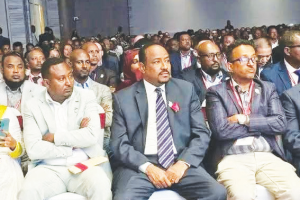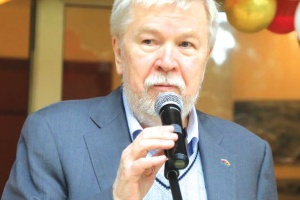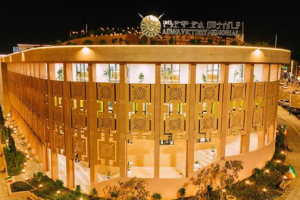At the Berlin conference of 1884 also known historically as the Partition of Africa, European nations “agreed to rules for further claiming of African territory: each country was to notify the others of its claims, and each claim was to be followed with “effective occupation” of the claimed area. Conference participants stated lofty goals for their African territories, which included ending the slave trade and extending civilization, Commerce, and Christianity to the African people.”
European colonialism in Africa in the 19th century is legitimately demonized for setting the borders of African countries quite arbitrarily without due consideration to the characteristic that make the various African peoples different from one another and the territorial claims that may arise later on. History proved the advocates of colonial rule wrong as it later on transpired.
Post-colonial Africa is still enmeshed in border conflicts, rival territorial claims and counter-claims that often led to armed conflicts. Most of the border conflicts are thus the legacy of European colonialism. The process was undertaken in a rush and in accordance with the colonial claims of various European powers so much so that the realties on the ground were ignored and the consequences of their decisions proved fatal in the 20th century.
“In an article entitled “Africa’s Arbitrary Borders”, its author Howard W. French wrote that, “From the earliest days of African independence, this continent’s leaders have repeatedly had to wrestle with the legacy of the arbitrarily drawn borders established and frozen in place by Europe’s colonial powers. The impacts of these divisions were felt to varying degrees from one country to another throughout Africa. In the case of Ghana, for example, the country’s western border with Côte d’Ivoire (Ivory Coast) split the large cultural cluster of Akan-speaking peoples in two. Ghana’s eastern border with Togo achieved the same result, by arbitrarily splitting up the large Ewe ethnic group.
Over time, divisions like these have repeatedly fed political tensions between neighboring states. In the case of Ghana, both Akan and Ewe groups have shifted their national allegiances depending on the shifting fortunes of the countries they inhabit.
Even more troublesome are cases like Nigeria, where European boundaries forced starkly different, rival cultures, each with long-standing political traditions of their own, to cohabit within the confines of a single state. When Nigeria won its independence in 1960, these rivalries remained.”
Post-colonial Africa did not only suffer the consequences of the infamous partition of Africa as the borders of many countries were allowed to maintain the colonial demarcations as temporary or permanent arrangements depending on the specific cases. Yet over time, these time bombs left behind by the colonial rulers started to explode and give rise to many wars and border conflicts.
Just as European colonialists drew arbitrary borders by ignoring the linguistic, cultural and identity specifics, post-colonial African themselves applied the same rules and approaches in managing the claims and counter-claims of individual African countries divided along colonial interests later added divisions or sub-divisions along ethnic and linguistic lines further complicating the colonial legacy of divide and rule.
In most African countries, communities are still distinguished along ethnic, tribal linguistic and cultural lines the as the major parameters of political management by the local authorities. Although these arrangements were as fiercely and violently implemented as in the colonial times, the frictions and conflicts they generated were equally disastrous. The power dynamics between and among the various ruling elites among the various African ethnic groups further exacerbated the colonial as well as the post-colonial arrangements and led to secessionist tendencies or civil wars that claimed many lives. In this sense both the colonial and post-colonial political dynamics of many African countries were shaped by the European powers at the infamous Berlin conference. Unfortunately no one among the powers could see or predict the consequences of their actions.
In the 1950s and 1960s, many or most African countries attained nationhood and independence while carrying the burdens of colonialism on their backs in addition to the immediate challenges of nation-building. Nation-building in Africa which is largely unfinished proved an uphill journey replete with reversals and even defeat.
Nation-building remains a burning challenge not only in post-colonial African societies. Ethiopia has never been colonized in its entire history, but the task of nation building in the sense of creating a unified and unifying identity still remains an unfinished homework for all citizens. Ethiopia started the process of nation building later than European countries that had already gone through advanced capitalist economic development culminating in 19th century imperialism.
Ethiopia on the other hand lost much time under traditional or feudal economic system that prevented the early unification of the different princely lands into one strong national entity. Many African countries have also attained nationhood during what are known the independence decades of the 1960s. Many of them have built stable, functional and unified national entities after so many ups and downs, reversals and advances. Ethiopia’s current political challenges of nation building largely emanate from its retardation in the unification process that was only started lately.
This does not however imply that Ethiopia remained under the tutelage of what is known in history as the “Era of the Princes” when the county was carved up into princely holdings with warlords controlling them ad ruling over them in accordance with their local interests. It was only emperor Menelik who completed the work of unification at the turn of the 20th century when he created a centralized administration and created a permanent capital for his unified empire.
In this sense Menelik is for Ethiopia as Garibaldi is for Italy or Otto Von Bismarck for Germany. These were European leaders who brought about the unification of their respective nations “by fire and iron”.
Emperor Menlelik might have committed some errors in the process of unification of the various local principalities. These mistakes might have been inevitable given the level of political and economic development of the time. On balance however, Menelik has done what he could do under the difficult circumstance when European colonialism was threatening to occupy Ethiopia and the Horn region in general. The little appreciated fact is that Menelik was also a unifier of Africa for two main reasons. The first is his victory at the Battle of Adwa while the second is his success in creating the Ethiopia as we know it now and by inspiring other African countries to rise against colonialism.
Overall, historians agree that Menelik has left behind a positive legacy that needs to be embraced and improved rather than dismantled as some separatist minded politicians would argue. In Europe there is no demand for a return to the pre-Garibaldi or pre-Bismarck times of national divisions. The same applies to Ethiopia in the sense that the task ahead of the people is one of political integration on the basis of economic, social and cultural integration.
As a country that played a central role I the final defeat of European colonization and African independence, Ethiopia should become a beacon of national and continental unification instead of looking back at its past with jaundiced eyes. The present generation of Ethiopian politicians should grasp the truth that Ethiopia was and is a great nation and that it should become great again not through divisions that lead to weakness but through greater integration and unity both within and outside the country. A country becomes great by working for the greater good of Arica and not by remaining isolated.
The new generation carries the burden of Ethiopia’s renaissance as a great, powerful, peaceful and prosperous country. Mistakes might be made in the course of implementing this great project. Yet, with selfless devotion to the country, hard work and honest bargain among all the stakeholders, Ethiopia is bound to emerge stronger than before. This is in fact the objective of the ongoing national consultation among the various political and civil groups. It can be summed up as a process of revisiting the past in order to build a stronger future for Ethiopia and for Africa.
Both Ethiopia and Africa are endowed with linguistic and cultural diversities that can be used as building Blocks for a new African identity. Africa will be great by taking these factors as assets and not as liabilities, as opportunities not as challenges alone. And the duty of African intellectuals and the people altogether is to come together to live u to the expectations of one billion plus people waiting to be lifted out of poverty and catapulted into the new era of freedom.
BY MULUGETA GUDETA
The Ethiopian Herald 30 April 2022




